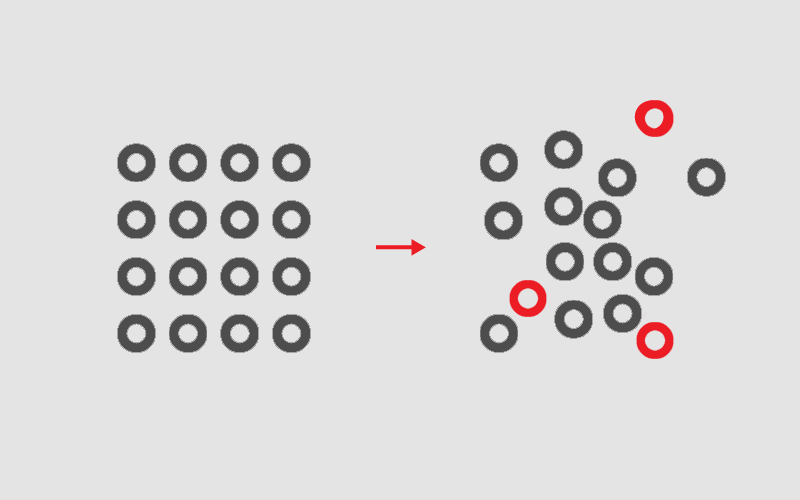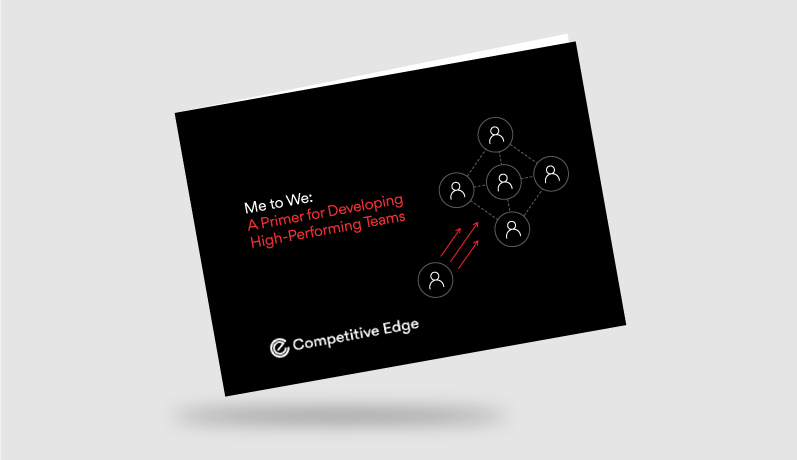As a leader, do you often wonder why your organisation is not performing as it should? You’ve developed and communicated your strategy and implemented robust tactics to deliver it. Your initial results may well have been encouraging, but now the elements involved are no longer in sync, and despite your best efforts, this is causing the system to, at best, underperform or, at worst, begin to break down.
What you are experiencing is a phenomenon we call organisational entropy.
Entropy is the second law of thermodynamics, a set of universal laws that help us understand energy and systems. In a broader context, these rules provide the foundation for how the world works. They apply to all systems in the known universe and offer us unique insights into how human systems, such as teams, businesses, or organisations, work.
Entropy is the fundamental principle that closed systems tend toward increasing disorder. Simply put, it means that things naturally break down. For example, just as machinery eventually wears out and needs repair, and processes become inefficient without regular review and improvement, organisational entropy means that any team, department, or business will eventually lose focus and effectiveness over time.
Organisational entropy manifests itself as:
- Miscommunication among individuals and teams
- Lack of alignment with organisational goals
- Increased conflict and stress levels
- Loss of innovation and adaptability
- Reduced efficiency, motivation and performance
In a complex human system such as a team, business or organisation, the whole should always be greater than the sum of its parts. Systems thinking tells us that each element within the system is interconnected. Everything relies on something else to function correctly, with each component receiving feedback from another and responding accordingly. When these interconnections break down, or the feedback received is not self-correcting, the system becomes unbalanced and, over time, ceases to function as it should.
A leader’s job is to manage and counteract entropy to prevent system breakdown. The goal is to reach a state of equilibrium when all elements are in balance and none of the variables operate outside its desired range. Maintaining equilibrium within an organisation is an ongoing process that requires an agile approach. This involves constantly monitoring team dynamics and adjusting activity and processes in the face of ever-changing internal and external forces.
Strategies for maintaining organisational equilibrium include:
- Regular Assessments: Conduct frequent evaluations of team dynamics and organisational health.
- Clear Communication: Ensure goals, expectations, and feedback are transparent.
- Flexible Adaptation: Be willing to adapt strategies and processes as needed.
- Employee Engagement: Foster a culture of engagement and ownership among team members.
We call this transitioning from a “me” to a “we” culture — a collaborative approach that shifts the focus from individual accomplishments (me) to collective success (we). We believe this is essential to counteract organisational entropy and drive positive change, and it’s a philosophy that underpins our approach to learning and development.
Investing in professional training and development counteracts entropy by sustaining your people’s performance at its peak. Regular training and coaching will ensure your team remains agile, innovative, and focused.
It helps:
- Enhance employees’ skills to adapt to changing environments.
- Strengthen team cohesion and collaboration.
- Develop leadership capabilities to help manage and inspire teams effectively.
“The only thing worse than training your employees and having them leave is not training them and having them stay.”
– Henry Ford
Understanding entropy and its impact on organisational dynamics is essential for business leaders. By actively managing this natural tendency toward disorder and investing in professional training and development, leaders can maintain organisational equilibrium, promote positive change, and ensure long-term success.

